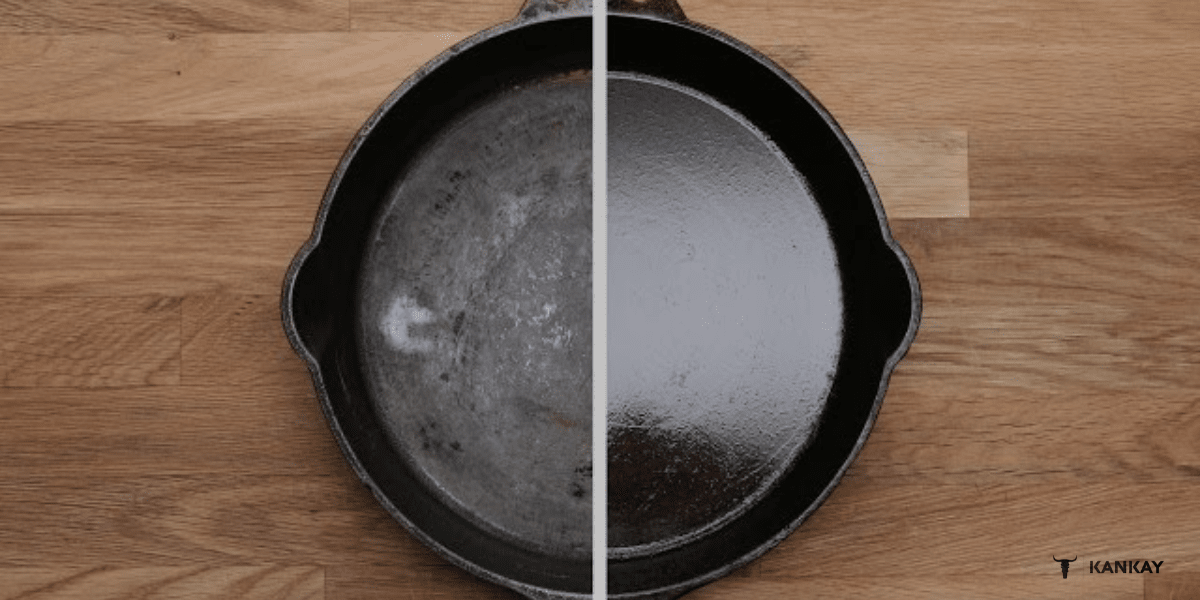When it comes to outdoor cooking, there’s nothing quite like the sizzle of a perfectly seasoned cast iron skillet. Whether you’re a seasoned grill master or a weekend barbecue enthusiast, the cast iron skillet is a versatile and indispensable tool in your culinary arsenal. However, to ensure that your iron skillet continues to deliver stellar results, it requires proper seasoning and care. In this comprehensive guide, we’ll delve into the art of seasoning and offer valuable tips on maintaining your cast iron skillet for a lifetime of delicious meals.
Understanding the Basics: What is Seasoning?
Contrary to what the term might suggest, seasoning a cast iron skillet doesn’t involve sprinkling it with herbs and spices. Instead, it refers to the process of treating the surface with oil and high heat to create a protective layer. This layer not only prevents rust but also contributes to that coveted non-stick quality that makes cast iron skillets so beloved.
The first step in seasoning your cast iron skillet is to wash it thoroughly with hot water and a stiff brush. Avoid using soap, as it can strip away the skillet’s seasoning. Once cleaned, it’s crucial to dry the skillet completely to prevent rusting.
Choosing the Right Oil for Seasoning
Selecting the right oil is paramount to successful seasoning. Opt for oils with high smoke points, such as vegetable oil, flaxseed oil, or grapeseed oil. These oils can withstand the high temperatures required for the seasoning process without breaking down or forming a sticky residue.
To begin the seasoning process, apply a thin, even layer of oil to the entire surface of the skillet, including the handle and exterior. Be sure to use a paper towel to remove any excess oil, as a thick layer can result in a gummy finish. Place the skillet upside down in a preheated oven at 375°F (190°C) and bake for about an hour. This allows the oil to polymerize, forming a durable and slick coating.
Repeat this process several times to build up a robust seasoning. The more you use your cast iron skillet, the better the seasoning becomes, creating a natural non-stick surface that enhances the flavor of your dishes over time.
Maintenance Tips for a Happy Cast Iron Skillet
Once your cast iron skillet is well-seasoned, proper maintenance is key to ensuring its longevity and optimal performance.
Here are some essential tips for caring for your cast iron skillet:
- Avoid Soap and Harsh Detergents: While it’s tempting to reach for soap to clean your skillet, resist the urge. Instead, use hot water and a brush to scrub away any food particles. Soap can break down the seasoning, undoing your hard work.
- Dry Thoroughly: After washing, towel dry your skillet immediately. Leaving it to air dry can lead to rust formation. If necessary, place it on the stove over low heat for a few minutes to ensure it’s completely dry.
- Re-Season Regularly: Over time, the seasoning on your cast iron skillet may wear off, especially with frequent use. When you notice a decline in its non-stick properties, it’s time to re-season. Follow the initial seasoning process outlined earlier to restore and maintain that slick surface.
- Store Properly: To prevent scratches and maintain the seasoning, avoid stacking other cookware inside your cast iron skillet. Instead, place a paper towel or cloth between stacked items to protect the surface.
- Handle with Care: While cast iron is durable, it’s not indestructible. Avoid dropping your skillet or exposing it to extreme temperature changes, such as transferring it from a hot stove to cold water.
- Remove Rust Promptly: If rust does appear, don’t panic. Use a scrub brush or steel wool to gently remove the rust, then re-season the skillet immediately to prevent further corrosion.
- Cooking with Acidic Ingredients: Be cautious when cooking acidic foods, as they can potentially strip away the seasoning. If you’re preparing dishes with tomatoes, vinegar, or citrus, it’s advisable to re-season your skillet afterward.
The Timeless Charm of Cast Iron Cooking
In an era dominated by modern cookware innovations, the enduring popularity of cast iron skillets speaks volumes about their reliability and performance. With proper seasoning and care, a cast iron skillet can become a cherished family heirloom, passed down through generations.
So, the next time you fire up the grill or stove, remember that your cast iron skillet is more than just a cooking utensil—it’s a piece of culinary history. Treat it with the respect it deserves, and it will reward you with a lifetime of delicious meals and memories. Happy grilling!
